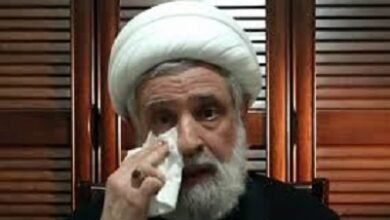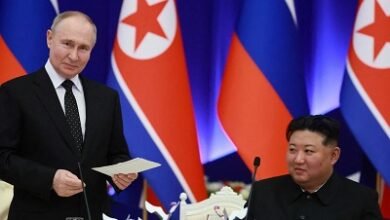War in Sudan put South Sudan’s financial lifeline at risk. !!!
Editorial:- S K Singh: Editor-in-Chief

WAR-REPORT:- War in Sudan put South Sudan’s financial lifeline at risk. Sudan has long sold South Sudanese oil from an export terminal in Port Sudan as a means of collecting fees from Juba for the use of its pipelines. Before the war, Sudan’s earnings from such fees were estimated at tens of millions of dollars a month. Separately, Juba agreed to pay Khartoum $3 billion in compensation for the oil infrastructure it inherited when it seceded in 2011, reportedly settling the last tranche in March 2022.
When the Sudanese civil war erupted in April 2023, few doubted that it would cause enormous difficulties for South Sudan. Hundreds of thousands of people have fled southward to a country that cannot feed those who already live there. A staggering 7.1 million of South Sudan’s 12 million-strong population are acutely hungry, while cross-border trade with Sudan has ground to a halt.

The country’s security is at risk as it becomes embroiled in the conflict. Destitute South Sudanese are now fighting on opposite sides of Sudan’s war; some may carry their arms back home one day. South Sudan is also grappling with the difficult task of staying on good terms with both of Sudan’s main belligerents – the paramilitary Rapid Support Forces (RSF) led by Mohamed Hamdan Dagalo “Hemedti” and the army headed by Abdel Fattah al-Burhan – so that neither turns against it.
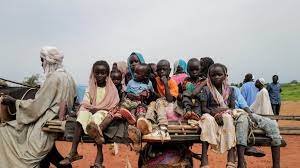
A host of critical challenges confronted the government even before the outbreak of war in its neighbourhood. Preparations are lagging for elections scheduled for December, the first since independence. Other issues bedevilling the country’s leaders range from the weak economy and rampant corruption to catastrophic floods and deadly clashes in much of the countryside. But it is the damaged pipeline and its financial effects that pose the most immediate threat to South Sudan’s peace.

Oil is the glue that holds South Sudan’s rivalrous political elites together even as it also finances much of the country’s chronic violence. As Crisis Group reported in 2021, most of the wealth accrued from oil exports does not benefit the public.
Rather, the proceeds underwrite a violent patronage network that President Salva Kiir uses to maintain an uneasy overall peace in a country that descended into its own civil war only two years after independence. Before the pipeline fell into disrepair, oil accounted for at least 85 per cent of national revenue. If the government is unable to sell the affected crude, Kiir will struggle to keep the currency afloat, hold together his security forces and stave off deadly unrest.

The fighting in Sudan has its origins in the downfall of Omar al-Bashir’s 30-year dictatorship in 2019. Anger about high bread prices swelled into massive protests demanding that he resign. Top generals and security officials arrested Bashir in April of that year, seizing the reins of government and eventually signing a power-sharing agreement with civilian leaders that was to culminate in elections and restoration of constitutional rule.
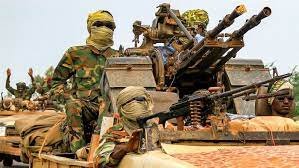
In 2021, the transition abruptly ended when the army dissolved the civilian cabinet and took power into its own hands. But tensions between Burhan and Hemedti mounted, with the RSF resisting coming under army command. Their respective camps came to blows in April 2023, turning Sudan’s capital Khartoum into a war zone and displacing millions. Although the pendulum has swung between the belligerents, both the army and the RSF now control vast areas encompassing crucial oil infrastructure.

South Sudan seceded from Sudan in 2011, but the young country remains entirely dependent on its northern neighbour to get oil to international markets, using two pipelines to transport crude to Port Sudan on the Red Sea. Yet one of these pipelines, responsible for about two thirds of South Sudan’s oil exports, broke down in February and will require months of complex repairs that must be made amid active combat. Absent stopgap measures, the consequences for South Sudan will be dire: the government will run out of money and the national currency’s value will plunge.
When the Sudanese civil war erupted in April 2023, few doubted that it would cause enormous difficulties for South Sudan. Hundreds of thousands of people have fled southward to a country that cannot feed those who already live there. A staggering 7.1 million of South Sudan’s 12 million-strong population are acutely hungry, while cross-border trade with Sudan has ground to a halt. The country’s security is at risk as it becomes embroiled in the conflict. Destitute South Sudanese are now fighting on opposite sides of Sudan’s war; some may carry their arms back home one day.

Sudan’s two warring parties had incentives to keep South Sudan’s oil flowing to the Red Sea terminal. When the army lost control of Khartoum, Burhan established his headquarters in Port Sudan, where his government continued selling Sudan’s allotment of South Sudan’s crude on international markets.
For its part, the RSF has sought to portray itself as a protector of oil infrastructure while also quietly siphoning off crude and seeking under-the-counter payoffs from Juba as well. The RSF diverts oil from the al-Jaili refinery north of Khartoum, the country’s sole such facility, which the paramilitary force captured in the war’s early days. The army has responded by repeatedly striking the refinery, destroying its fuel depots and likely diminishing its value to the RSF.
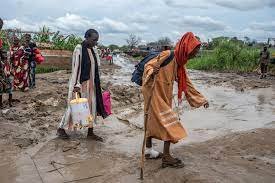
Then, in February, part of the 1,400km pipeline that connects the Melut Basin oilfields in South Sudan’s Upper Nile state to Port Sudan and is located in RSF territory broke down. The pipeline normally transports about 60 per cent of South Sudan’s oil production.
The malfunction occurred after the Sudanese company operating the pipeline – Bashayer Pipeline Company, or BAPCO – was unable to deliver diesel to a pumping station that keeps the waxy Dar blend of crude sufficiently heated to prevent it from congealing into an asphalt-like substance. This particular pumping station (one of many along the pipeline) is under RSF control, while BAPCO operates under Burhan’s energy ministry.
Source : ICG





